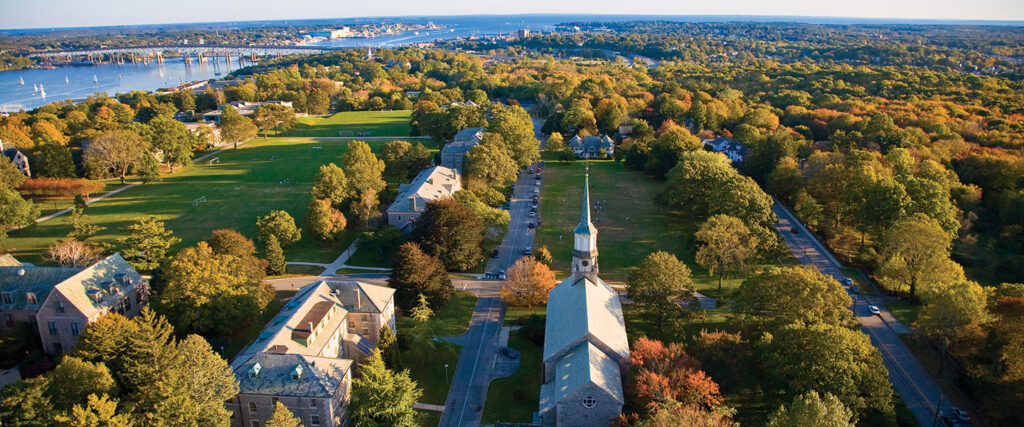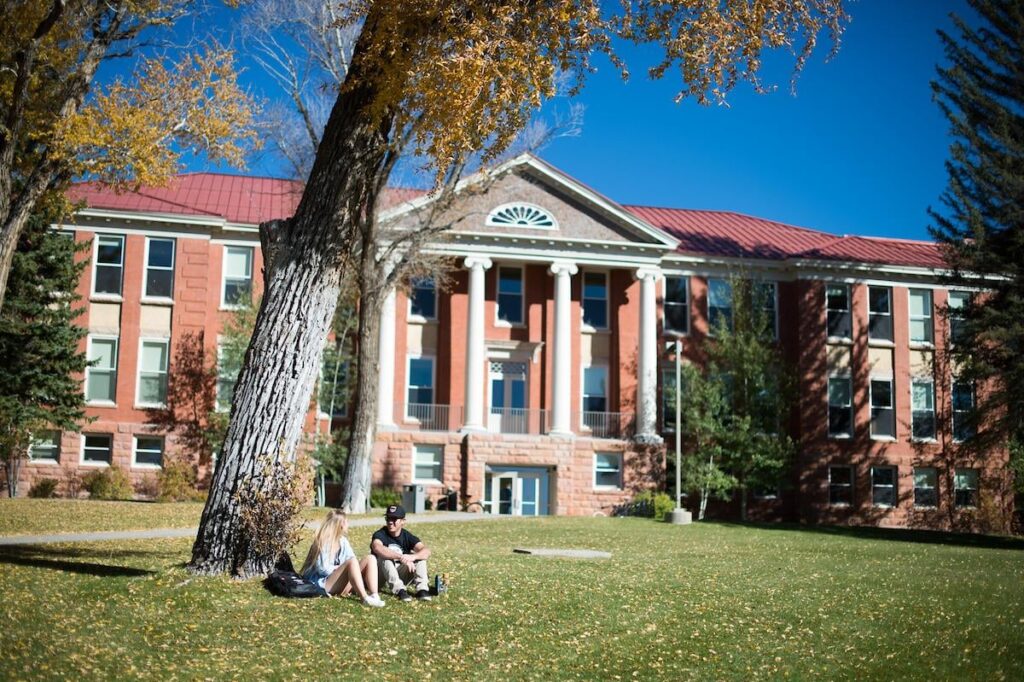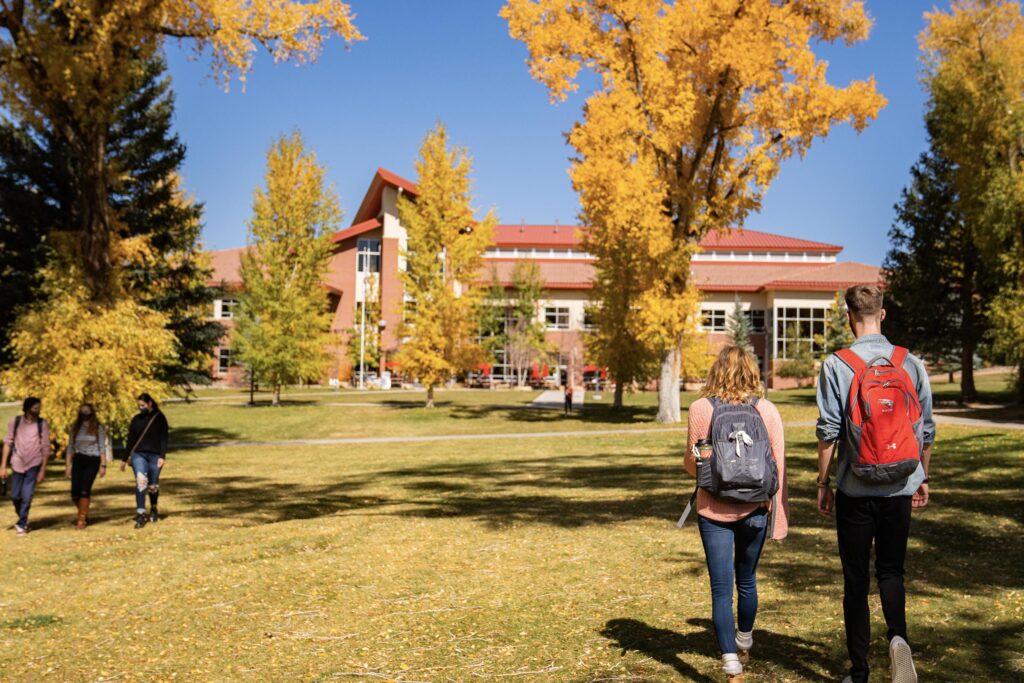An Open House for college is an event where prospective students and families visit campus to learn about the institution. It usually comprises campus tours, academic program info sessions, meetings with faculty, showcases of facilities, and opportunities to interact.
Moreover, they provide attendees with the opportunity to explore the campus environment and ask questions. They gather information to inform college choices. These events provide a firsthand experience of campus life, allowing visitors to envision themselves as part of the college community.
Preparing for Open House

Preparing for an Open House involves several key steps. These ensure both the hosting institution and prospective students have a fruitful experience.
Research the Event
Obtain information about the date, time, and location of the Open House. Ensure it fits into your schedule and plan accordingly.
Familiarize Yourself with the College/University:
Research the institution’s academic programs, extracurricular activities, campus facilities, and any other relevant information. This will help you ask informed questions and make the most of your visit.
Prepare Questions:
List questions about the college. Admission requirements, financial aid, campus life, and academic programs to gain comprehensive information. This will help you gather all the necessary information during the event.
Check Registration Requirements
Some Open Houses may require pre-registration or RSVP. Follow the institution’s registration process to secure your spot and receive essential materials or updates as required.
Plan Your Transportation and Accommodation
If the Open House is not in your local area, plan your transportation and accommodation. Consider factors like traffic, parking availability, and lodging options near the campus.
Dress Appropriately
Dress comfortably and appropriately for the weather and the activities planned for the day. When on campus or outdoors, wear comfortable shoes and dress in layers for changing weather conditions, if necessary.
Bring Necessary Materials
Carry a notebook and pen. Bring any relevant documents, such as high school transcripts or a resume, for meetings.
Set Expectations
Clearly define your goals for attending the Open House. Whether it’s getting a better understanding of a particular academic program, touring campus amenities, or experiencing campus life. This will help you prioritize your time and activities during the event.
Be Open-Minded
Explore every facet of the college or university during the Open House with an open mind. Including the ones you could have never thought about previously. Seize the chance to engage with academics, staff, and current students to acquire a variety of viewpoints.
Arrive Early
Arrive early for Open House to check in and familiarize yourself with the campus layout, ensuring ample time for exploration. This will also allow you to beat the crowds and make the most of your time on campus.
Components of an Open House

An Open House for a college or university usually comprises diverse activities and resources. These aim to give prospective students and families a comprehensive understanding of the institution.
Campus Tours
Guided tours, led by ambassadors or staff, showcase campus landmarks, academic buildings, residence halls, and other facilities to visitors.
Self-Guided Tours, Visitors may explore the campus at their own pace using maps or mobile apps provided by the institution.
Information Sessions
Academic Programs: Presentations or panels that provide detailed information about the college’s majors, minors, academic departments, research opportunities, and faculty.
Admissions Process: Sessions covering topics such as application requirements, deadlines, standardized testing, and tips for a successful application.
Faculty and Student Panels
Prospective students engage with faculty and peers, exploring academic programs, campus life, research, and more through interactive sessions.
Panels where current students share their experiences, challenges, and successes at the college or university.
Campus Facilities Showcase
Tours of residence halls, including sample dorm rooms, common areas, and amenities.Tours or demonstrations of sports facilities, fitness centers, stadiums, and recreational spaces.
Interactive Activities
Hands-on sessions or workshops on topics such as academic advising, study abroad opportunities, career services, or specific academic disciplines. Interactive demonstrations or showcases of research projects, artistic performances, laboratory experiments, or technology initiatives.
Admissions and Financial Aid Booths
Admissions counselors are available to answer questions, provide guidance on the application process, and review application materials.
Representatives from the financial aid office offer information on scholarships, grants, loans, work-study programs, and other financial assistance options.
Special Events or Presentations
Speeches or presentations by college administrators, alumni, or guest speakers highlight the institution’s mission, values, achievements, and future goals. Alumni share college experiences, reflecting on career and personal life impact in discussions about their journey post-graduation.
Networking Opportunities
Informal meet-and-greet sessions with faculty, staff, alumni, and current students to foster connections and build relationships within the college community.
Resource Fair
Campus booths and tables offer info, resources, and giveaways from departments, student groups, and community partners.
Refreshments and Hospitality
Refreshment stations or hospitality areas offer snacks, beverages, and rest areas for attendees to relax and recharge during the event.
Tips for Attendees

Tips for maximizing your college Open House experience: arrive early, ask questions, explore campus, attend presentations, and interact with faculty.
Prepare in Advance
Research the college or university beforehand, familiarizing yourself with its academic programs, campus culture, and extracurricular opportunities. Create a list of questions covering majors, housing options, and campus resources. Also, include inquiries about student life during the Open House.
Arrive Early
Arrive early for the event to check in, gather materials, and secure a prime spot for activities or presentations.
Arriving early allows you to beat the crowds and explore the campus at your own pace. You can also engage with staff and students before the event gets busy.
Engage Actively
Participate in campus tours, information sessions, workshops, and interactive activities offered during the Open House. Inquire about academic programs, admissions, financial aid, and campus facilities to clarify any doubts or seek information effectively.
Take Notes
Bring a notebook or use your smartphone to take notes during presentations, tours, and conversations with faculty, staff, and students. Jot down key information, insights, and impressions to review later when making decisions about college choices.
Explore Thoroughly
Explore campus: academic buildings, halls, dining, and recreation areas. Seize the opportunity to discover diverse spaces and experiences. Pay attention to the campus environment, aesthetics, and overall atmosphere to see if it aligns with your preferences and interests.
Connect with People
Connect with faculty, admissions, students, and alumni for diverse insights about the college or university. Exchange contact information with individuals who can serve as resources or mentors throughout the application and decision-making process
Stay Open-Minded
Keep an open mind when considering colleges or universities. Consider academic offerings, campus culture, location, and growth opportunities. Be receptive to new experiences and possibilities, even if they may differ from your initial expectations or preferences.
Gather Information
Collect brochures, flyers, business cards, and other materials provided at information booths, resource fairs, and admissions sessions. Review the materials later to reinforce your understanding of the college or university and make informed decisions.
Reflect Afterwards
Take some time after the Open House to reflect on your experience, thoughts, and feelings about the college or university. Evaluate the institution’s alignment with your academic, personal, and career goals, ensuring it feels like a suitable fit.
Follow Up
Follow up with Open House contacts for more information or to express continued interest in the program or institution. Stay connected with your college by attending events, scheduling visits, or engaging in online forums and social media.
FAQ’s
What is a prospective student?
Prospective students may attend a school in the future, visiting campuses to explore facilities and consider enrollment options. The term “prospective” implies an expectation or likelihood of future attendance.
What is the difference between a student and a prospective student?
A student is enrolled; a prospective student considers enrollment but hasn’t committed to a school or program yet. Prospective students may be high school seniors applying to college or adults planning to pursue further education.
What is UCLA looking for in a student?
UCLA seeks students with diverse backgrounds, personal stories, and leadership experiences. UCLA values intellectually curious individuals who’ve shown academic growth and are ready to contribute to the community.
Does prospective mean admitted?
NO, Prospective students express interest but may not yet be admitted to a specific school or program. Current students are those who have completed the enrollment process and have been accepted into the program.
Why is it called student?
The word “student” originates from the Latin word “studēre,” meaning to be eager, zealous, or diligent in study. In modern European languages, variants of the word “estudiant” are used to refer to students.
Final Words
Open Houses at colleges are such exciting events for prospective students! It’s an opportunity for them to get a firsthand look at campus life, academic programs, admissions, and facilities. They can engage with faculty, staff, and current students, which is super valuable for gaining insights and information.
Further, they can gain insights into the college experience and assess institutional alignment. Open Houses offer a friendly environment for inquiries, tours, and imagining joining the campus community.
Ultimately, these events play a crucial role in helping students make informed decisions about their higher education journey.
